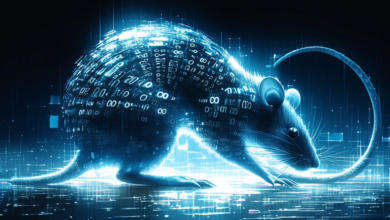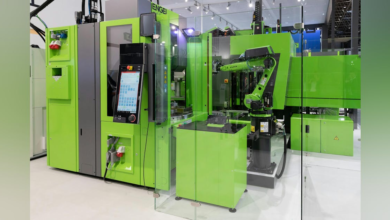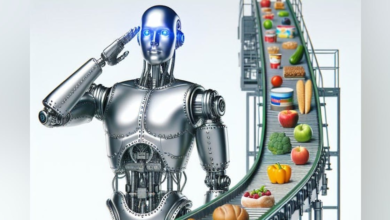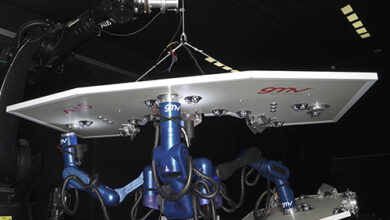The Rise of Robotics and AI in Sofia Technical University
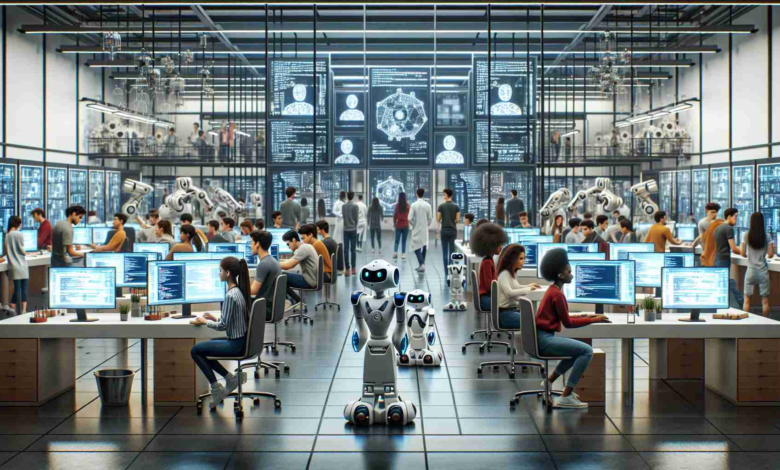
Technical University of Sofia Embraces Robotics
In the evolving world of technological advancements, the Technical University of Sofia has observed a dramatic upturn in student interest and involvement in the realms of robotics and artificial intelligence (AI). Responding to greater curiosity, the university has intensified its focus on programs that offer strong foundations in robotics, including degrees in automatic control systems, mechatronics, and the avant-garde bachelor’s program in intelligent systems and AI. These fields are brimming with potential, challenging both educators and researchers to keep pace with the rapid advancements.
Artificial Intelligence: A New Educational Frontier
The surge in popularity for AI comes from its remarkable applications. The faculty elaborates on AI as the design of agents, possibly robots or virtual beings, equipped with artificial wisdom capable of learning and decision-making amidst volatile environments. The field is ever-evolving with the latest buzz around generative AI, which can produce innovative outcomes from massive language models. Students are particularly intrigued by the hands-on engagement offered with tools like ChatGPT and BART, sparking conversations and experiments using natural language processing.
AI Demand in the Marketplace
There’s a growing demand for information systems with integrated AI, notwithstanding the higher investment required. Such advanced systems promise competitive edges requiring highly skilled professionals to add critical value. AI’s successful implementations range from autonomous vehicles and drones to cybersecurity and smart home applications. These breakthroughs showcase the far-reaching impacts of AI, reinforcing the need for continued research and application.
Robotics: Shaping Tomorrow’s Innovations
The university’s focus isn’t merely on robotics’ current state but its trajectory into the future. The expectation is that robots will increasingly undertake various human tasks, made possible by sensory capabilities akin to those developed by humans over millennia. Projects related to autonomous navigation and safe human-robot interactions are among the research conducted by the university.
The Educational Ethos on Error and Trial
A core component of the university’s teaching methodology in AI involves dividing complex problems into smaller parts, each addressed by a neural network. This approach enables students to correct errors and understand the intricacies of solving complicated tasks. Inspirational teaching methods encourage perseverance and innovation, a stance warmly received by the inspired youth eager to excel in robotics and AI.
The Lively Robotics Club Scene
The Technical University boasts a vibrant robotics club where students’ creativity is channeled into various projects, fostering learning through competitions, exhibitions, and other events showcasing robotics. Moreover, the recently established Mechatronics club combines the full spectrum of skills from electronics to robotics, resulting in unique student-driven innovations. These hubs of activity underline the university’s commitment to staying at the forefront of robotics education and research.
Global Influence and Collaboration
The Technical University of Sofia isn’t just a local hub for robotics and AI education; it participates in the larger global network of technology and engineering schools. Partnerships with other universities and tech companies worldwide enable student exchange programs and collaborative research projects. This global approach is essential for a comprehensive understanding of the vast applications and cultural implications of robotics and AI technology. The ability to leverage international knowledge and resources can help position the Technical University of Sofia as a leader in these cutting-edge fields.
Integration of Soft Skills in the Curriculum
A fact often understated is the importance of soft skills in the field of AI and robotics. Critical thinking, problem-solving, ethics, and communication are vital competencies for professionals in these industries. The Technical University of Sofia ensures that these skills are integrated into the curriculum, preparing students to not only be technically competent but also to effectively collaborate, lead, and make ethical decisions in their future careers.
Entrepreneurship and Innovation Support
The university also recognizes the importance of entrepreneurship within the tech industry. It often provides support and resources for students interested in starting their own companies, particularly in the robotics and AI sector. This fosters an environment where theoretical knowledge is coupled with practical skills and business acumen, further enhancing the employability and innovativeness of its graduates.
Key Questions and Answers
What are the job prospects for graduates in robotics and AI?
Graduates in robotics and AI from the Technical University of Sofia can expect favorable job prospects as the demand for skilled professionals in these areas continues to rise globally. Career opportunities span a myriad of industries including technology, healthcare, automotive, and finance.
How does the Technical University of Sofia align its research with industry needs?
The university aligns its research with industry needs by engaging in partnerships and collaborative projects with tech companies, ensuring that research has practical applications and meets the current and future needs of the marketplace.
Challenges and Controversies
One of the key challenges in the advancement of robotics and AI is the ethical dilemma posed by autonomous systems. These systems must be programmed with a set of moral principles to make decisions that reflect human ethics. Additionally, the potential for job displacement as robots become more capable and widespread is a contentious issue that requires careful consideration and policy planning.
Advantages and Disadvantages
Advantages:
– Robotics and AI have the potential to vastly improve efficiency and productivity in various industries.
– They can help solve complex global challenges, such as climate change and healthcare.
– Automation can take over dangerous or repetitive tasks, improving workplace safety.
Disadvantages:
– There is the potential for significant job displacement if automation and robotics are not integrated thoughtfully.
– The ethical implications of AI decisions and privacy concerns with AI surveillance technologies must be addressed.
– The rapid pace of technology could outstrip regulatory frameworks and lead to societal disruptions.
For more information on topics related to the advancement of robotics and AI, consider visiting the following IEEE and Robotic Industries Association websites.
